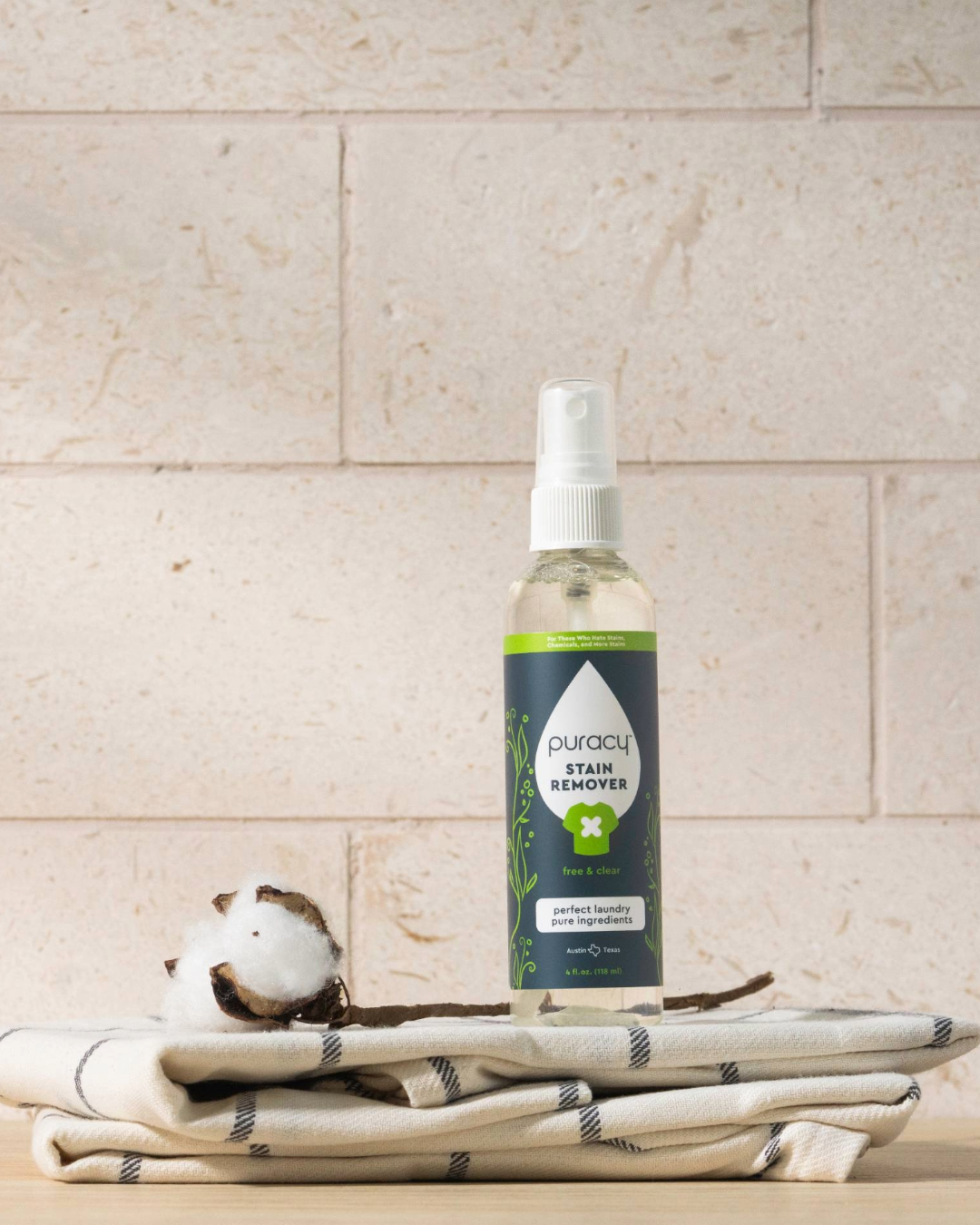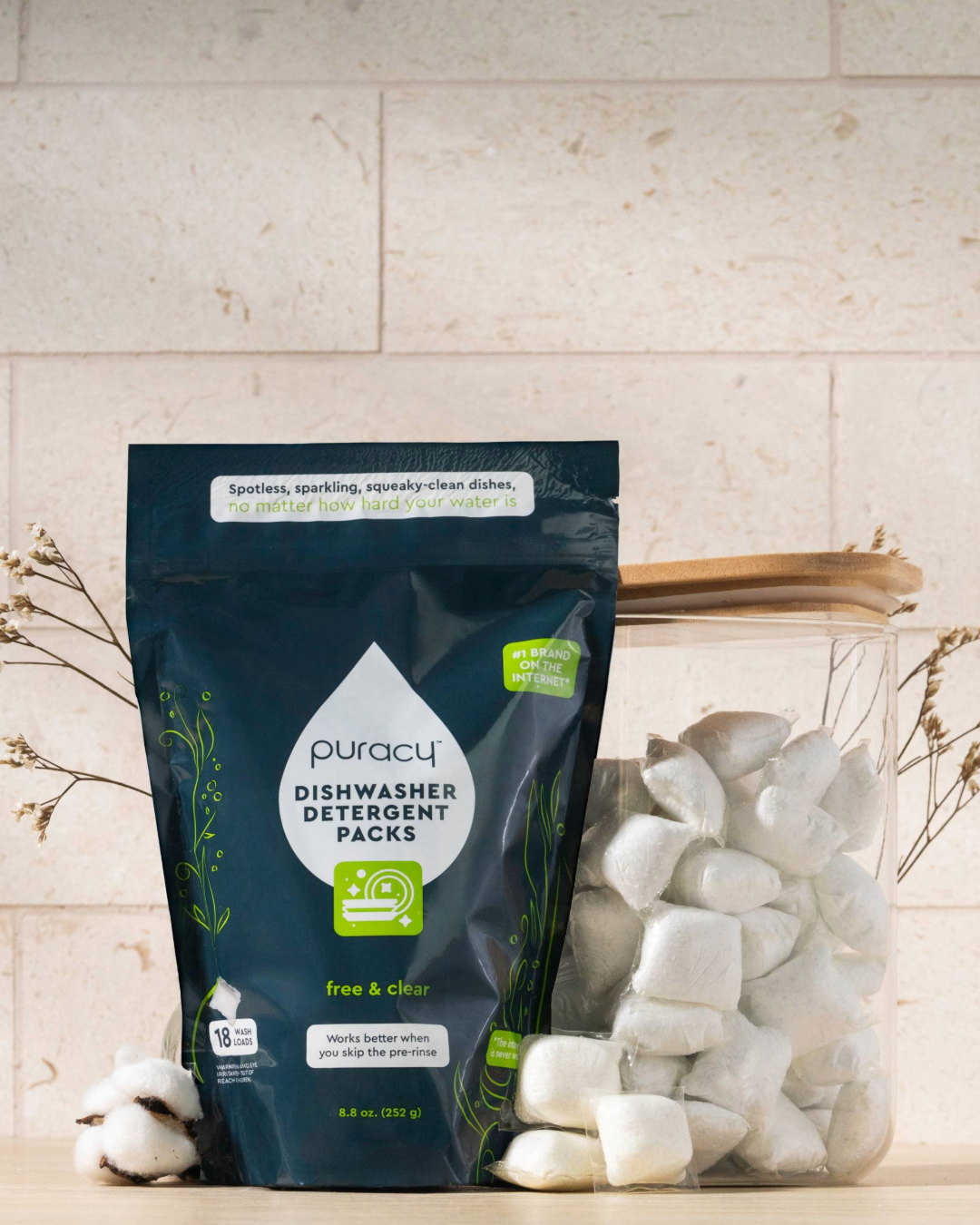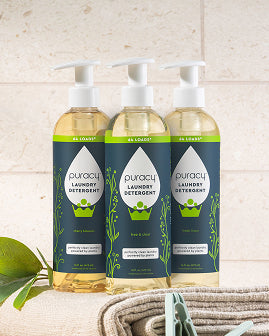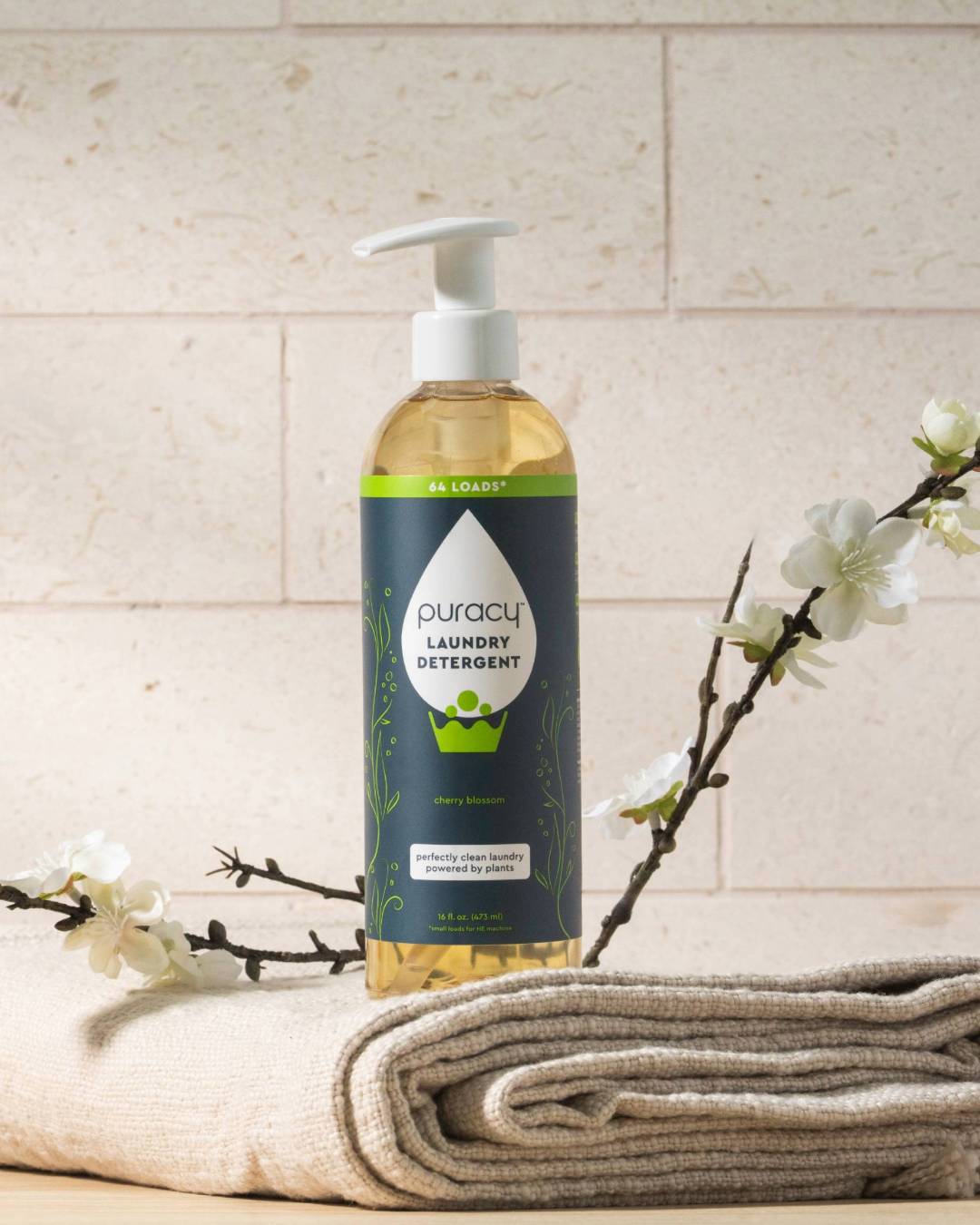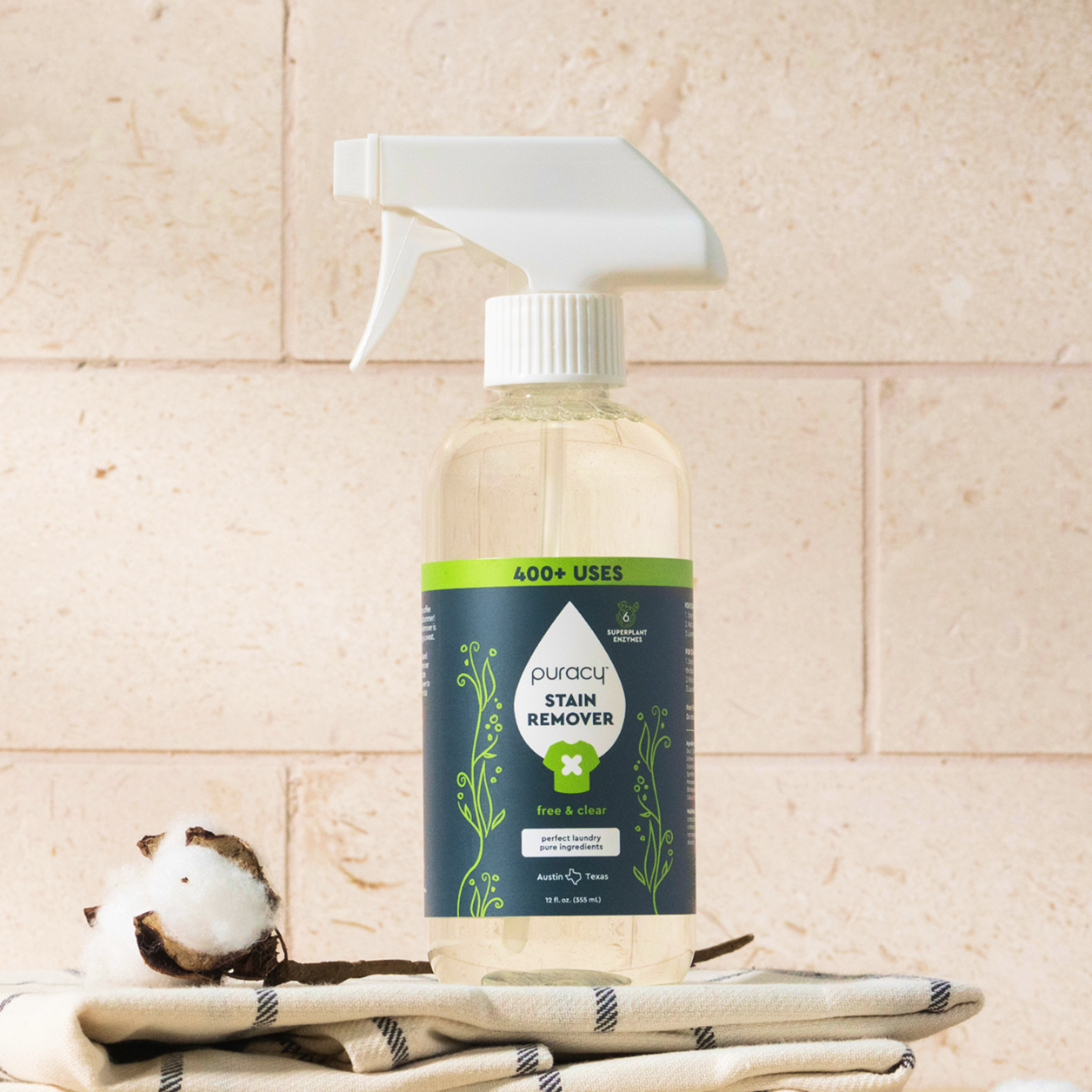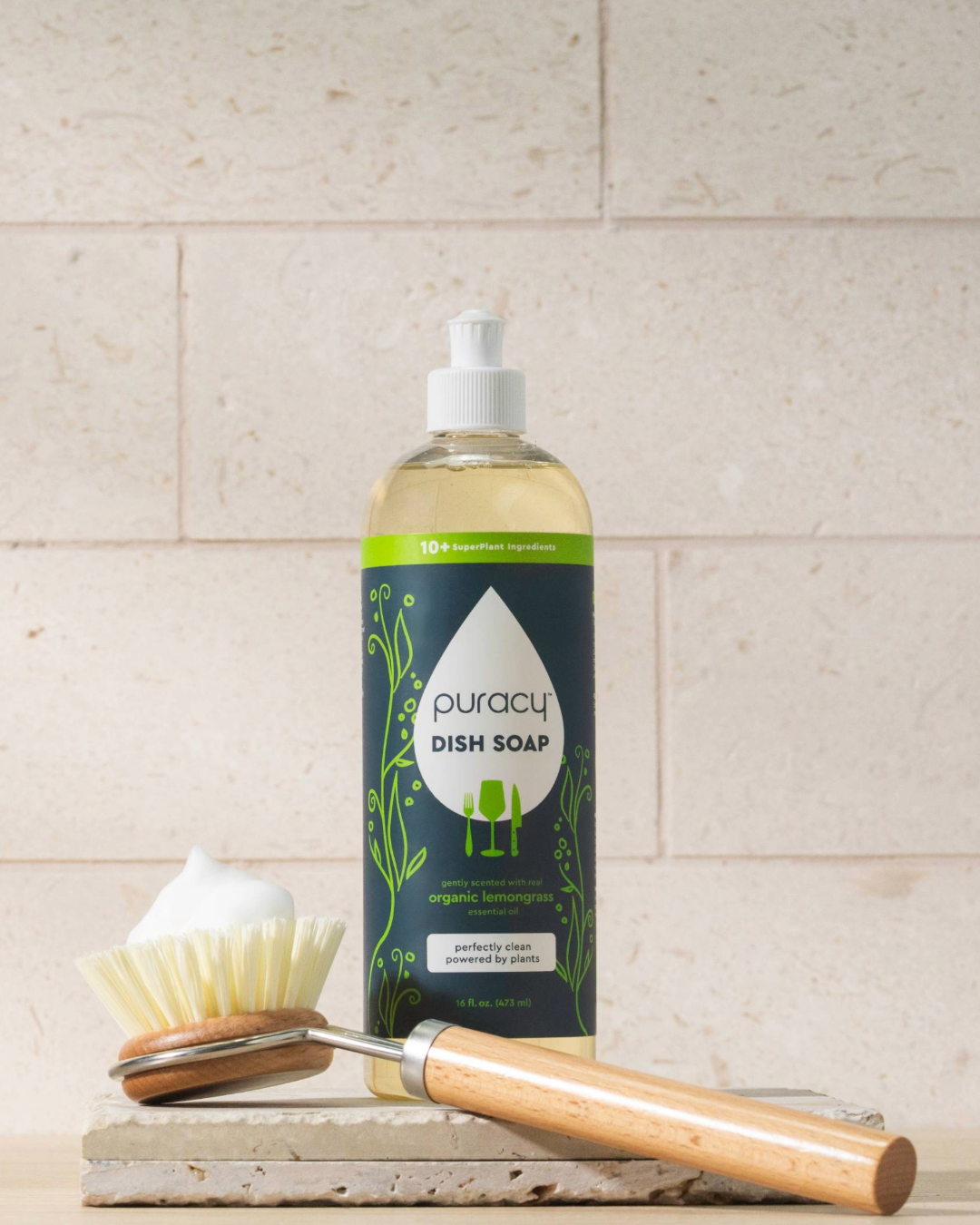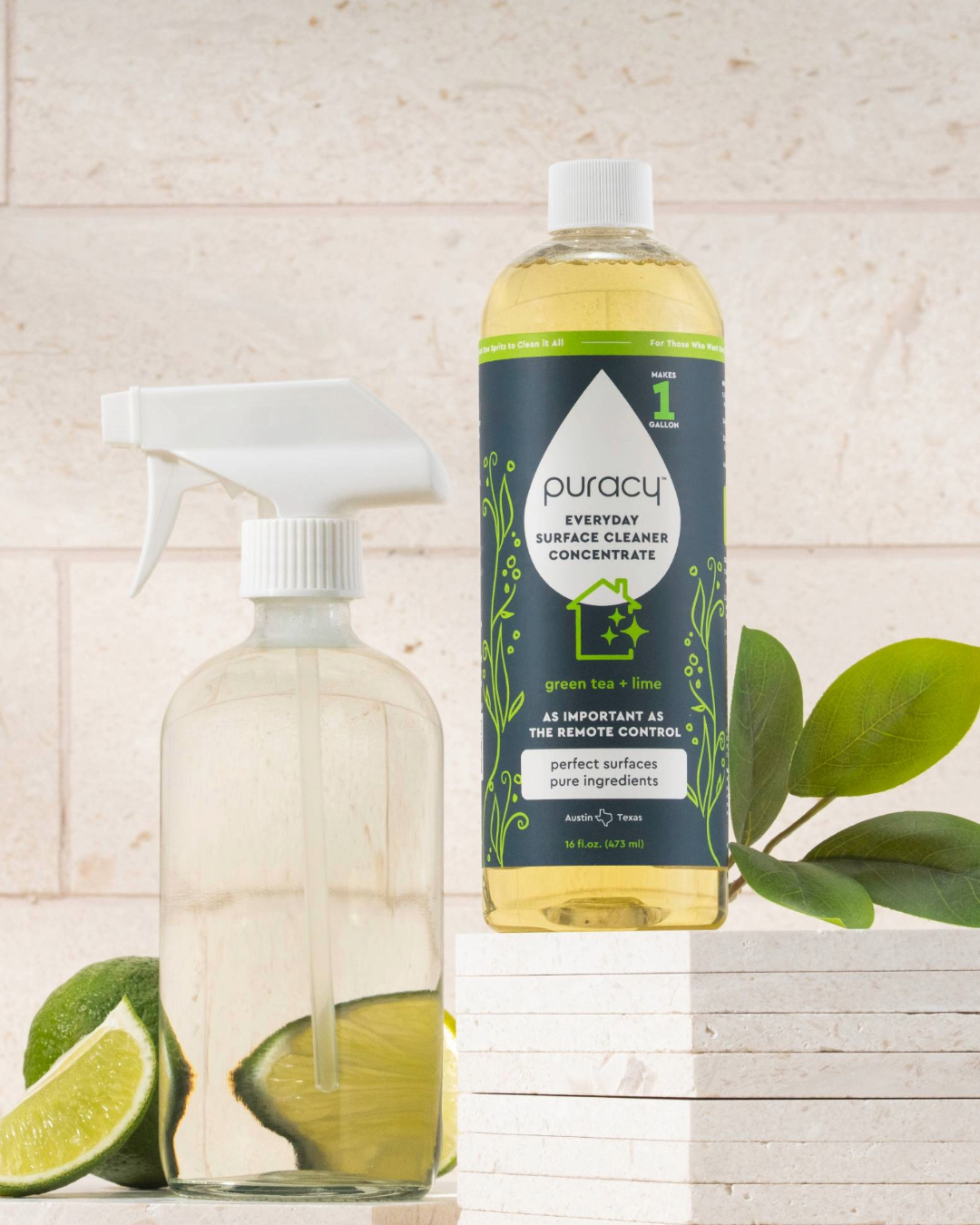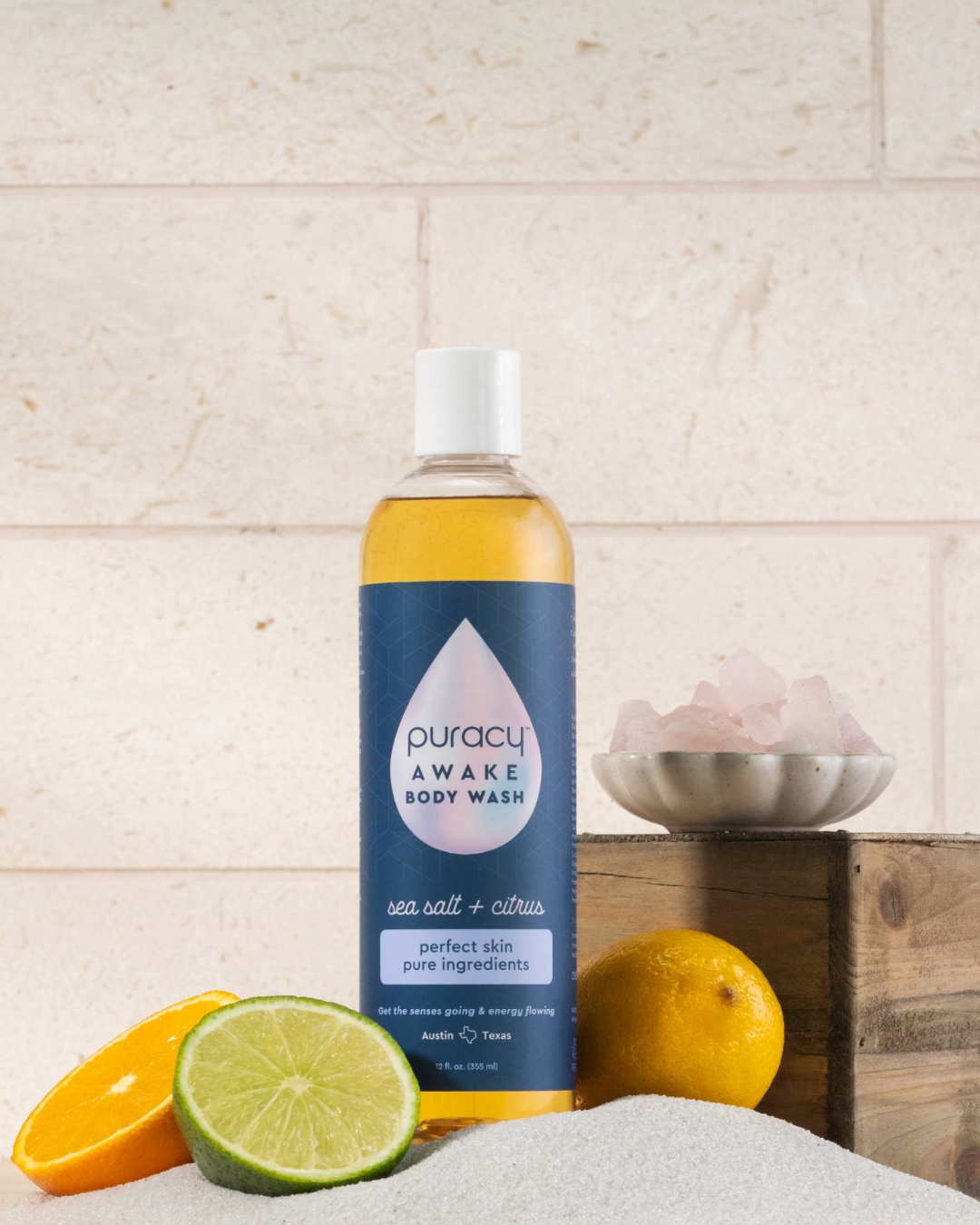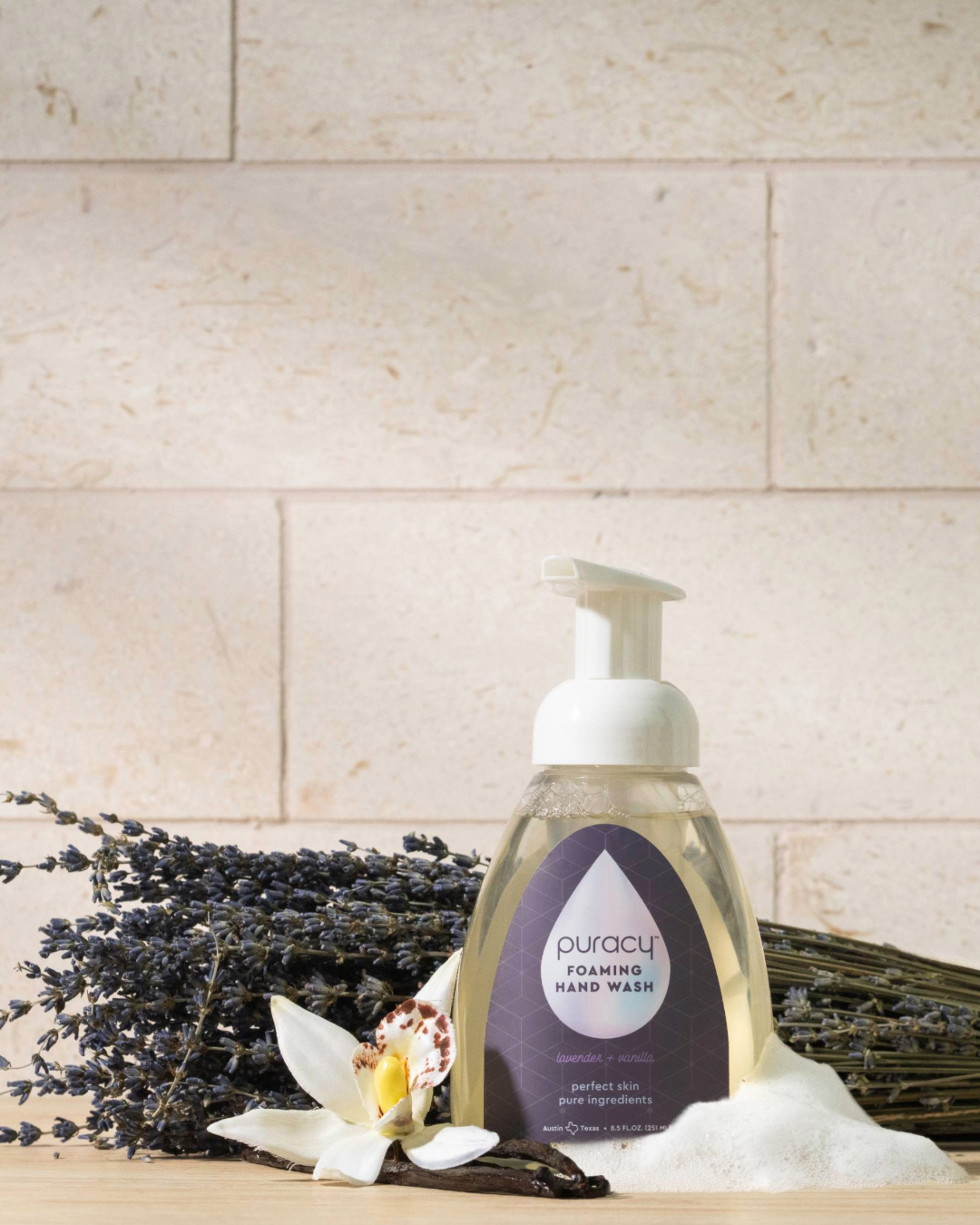What "Natural" Means to Us
As of this writing, the Food & Drug Administration (FDA), which is responsible for overseeing personal care products and cosmetics, does not currently provide a definition for the term “natural.” Because a legal definition does not yet exist, and because we are committed to transparency, we would like to explain what we consider “natural” to mean.
After reading through customer surveys, testimonials, and voluntary standards from various organizations (NPA, EWG, Whole Foods Eco Scale, etc.), we put together our own definition of the term "natural." In doing so, our goal is to help you make a well-informed decision as to whether our products are the right choice for your family.
Natural ingredients
For Puracy, a “natural ingredient” means it started from a natural, renewable source found in nature with absolutely no petroleum** compounds. Here are some examples of “natural ingredient” sources we use: coconut, lime, salt, olive oil, sunflower seed, green tea, geranium, corn, ginseng, pink grapefruit, sesame seed, vanilla bean, and many more.
A “natural ingredient” may also be identified as plant-based, plant-derived, or naturally derived.
For Puracy, a “natural product” means that more than 98.5% of the ingredients, by concentration, are considered “natural ingredients,” per our definition above. Additionally, a “natural product” is 100% biodegradable.
Synthetic ingredients
A “synthetic ingredient” is one that is not from a natural source, or that has been extensively synthesized before becoming the final ingredient.
We avoid using synthetic ingredients in our products, except in instances where:
- we are legally required by law to use a synthetic non-natural ingredient. For instance, the Environmental Protection Agency (EPA) requires the use of a preservative from their approved list in our dishwashing and laundry products. This list includes a number of synthetic ingredients but no natural ingredients which will work with our formulas. Therefore, we must legally comply with their requirement to use a synthetic ingredient to prevent the products from spoiling. The synthetic ingredient referenced here is Benzisothiazolinone (BIT). It is typically used in concentrations of 0.05% (50 ppm) or less and has a favorable tolerability profile based on the SDS and a European clinical trial studying BIT in cosmetics; or
- there is not a readily available natural alternative ingredient to choose from, or when the inclusion of the natural alternative would destroy the effectiveness and overall quality of the product as determined by our development team of Ph.D. chemists.
Our products
Based on our definition of natural, as outlined above, every Puracy formula within our bottles is at least 98.5% “natural,” and many of our products contain an even higher percentage of “natural ingredients.” In other words, even in those instances where we use synthetic ingredients, they never account for more than 0.7% of any given product formula.
We have also intentionally chosen to use packaging that is simple and easy to recycle at your local recycling center. Our bottles, pumps, sprayers, and caps are all made from Polyethylene Terephthalate, which is commonly known as PET(E). You can tell by looking for the #1 on the recycling logo. This is the same plastic you see most water, juice, and soda bottles made from. PET(E) is an inert plastic that does not leach harmful materials into its contents and does not contain Bis-phenol A (BPA). It is globally recognized as a safe, non-toxic, strong, reusable material that is 100% recyclable. In fact, it is the most widely recycled plastic in the world!
Below you'll find a list of all Puracy ingredients including the INCI name, common name, what it is, how it is made, what it does, why we use it, and any applicable references.
Click here to read more about the ingredients we use and those which we never do.
Additional Notes:
- Palm, Palm Oil, or Palm Kernel Oil is responsibly sourced from RSPO.org.
- Corn and Corn Sugars have been confirmed as Non-GMO by our suppliers but are not formally "Non-GMO Project Verified" at this time.
- "Trace" means negligible amounts from that source, if any.
